#metaphor extended past it's expiration date
Text
I am struggling today, and writing helps.
When I think about the difference between having Post Traumatic Stress Disorder (PTSD) and Complex Post Traumatic Stress Disorder (C-PTSD), I think of the internal frame of a skyscraper that is being built higher and higher as you age. That skyscraper represents your experiences and who you are, and the internal frame is your sense of self and understanding of the world.
When an acute traumatic event occurs, it blasts a hole in the internal beams. If the trauma is coped with immediately, the hole can be repaired, and little changes about the overall structure.
If the trauma is not treated or recognized for any reason, the crew continues to build the frame upward and constructs the building around it, even though the blast will leave that section brittle and prone to collapse. That’s how I understand PTSD.
C-PTSD is not about a single blast, it’s about a sustained traumatic environment like when living in a war zone or growing up as an abused child.
C-PTSD is an unqualified or purposefully negligent, cruel construction team building a frame that defies protocol or engineering guidelines. They may build on rainy days when the conditions are inappropriate and weaken the materials, or they may use the wrong tools. The frame doesn’t look or function as it should, but it keeps standing, and the building is built around it. All the floors above that section have to contend with the soddy construction below and may make unusual or dangerous architectural choices to keep the building standing.
Both PTSD and C-PTSD result in a damaged internal structure that may not be visible, even if you’re inside the completed building. All you may notice is that the walls and soffits are at different angles than other buildings, but the building shakes and groans and the façade is cracking in places – it knows something is wrong, even if it can’t name it.
There is no real comparison between the damaged skyscrapers because they both have diminished structural soundness in different ways. Treatment must begin with tearing down walls and looking at the skeleton either way.
In PTSD, if logs are available (and sometimes they are not – the mind can suppress traumatic memories), they show the day the hole was blown, so at least we know roughly what floor to start on.
In CPTSD, the blueprints, the logs, they all say the same thing, it has always been this way. You don’t know anything about architecture, you’ve never seen anything else built, how would you know anything was wrong? And even when you do, the ripple of corrections has completely distorted your understanding of the records.
I am trying to repair my CPTSD.
In CPSTD, where do you start the repairs? You go to one floor and realize the damage goes somewhere even lower, somewhere even deeper. Rooms and floors the elevator never had access to are appearing. The ways the beams had to curve and strain in some areas to accept this and understand that are knit into such complex reliance that a fix may actually destroy something. In some areas, it’s all bubble gum and paper clips. Replacing it with something sturdier may send a beam through a wall. Sure, it’s stronger now, but it may not look as good.
And the engineers in charge of this project? They are terrified. Because sure we all want a stable, healthy building to live in, but it’s been standing, why are we messing with it? How long is this going to take? What if we have to dismantle an “error” that had curb appeal, or a handy shortcut that barely worked but saved us some time now and again? Will people come back if that “feature” is gone? If this all has been so wrong for so long, what does that mean? Is this even a building at all? Do we need a new construction crew? Is this area even zoned for a skyscraper in the first place?
And while we replace the insides of the structure below, we must find a way to build upward and trust ourselves to do it right this time.
The more healed I am, the more I know about myself, the more I fear the person I’ve been and question my own understanding of the world. My therapist challenges me to consider alternatives to my thought processes. “What if you’re not wrong? What if you are safe? What if you’re allowed to make mistakes?” Yes, what if? This is such an unknown, modern design for my internal frame.
And the engineers have been wrong before.
#persnal#personal essay#writing#metaphor extended past it's expiration date#cptsd problems#cptsd recovery#living with cptsd#art therapy#journaling
14 notes
·
View notes
Link

Photo illustration by Slate. Images by Sullynyflhi/Wikimedia Commons Roi/iStock/Getty Images Plus.
Slate has relationships with various online retailers. If you buy something through our links, Slate may earn an affiliate commission. We update links when possible, but note that deals can expire and all prices are subject to change. All prices were up to date at the time of publication.
Forget all those pandemic novels people have been praising for their prescience in the age of COVID-19: For uncanny relevance, no fictional crisis rivals the showdown in N.K. Jemisin’s new urban fantasy The City We Became. A valentine to New York City, The City We Became depicts a metropolis under attack by a malevolent, infectious invader, aided and abetted by the stubborn fears and self-defeating prejudices of those who mistrust the city’s polyglot nature. No doubt when she was writing it Jemisin thought of the novel as a reflection of city life under the Trump regime, but damned if she didn’t anticipate how the seemingly maximized tensions of just a few months ago could be raised even higher and sharpened to a lethal point.
The City We Became is both an expansion of “The City Born Great”—one of the best stories in Jemisin’s 2018 collection, How Long ’til Black Future Month?—and a riposte to the 1925 H.P. Lovecraft story “The Horror at Red Hook,” a notorious explosion of racist disgust. It’s also a sophisticated exercise in contemporary allegory (and I’m not one to use that term lightly). What it isn’t, at least not consistently, is a crackerjack piece of storytelling. Jemisin’s premise is so savory and persuasive that it sometimes doesn’t matter that she hasn’t found a narrative style worthy of both. The city she sings fizzes so joyously through the veins of this novel that anyone mourning the New York before COVID-19 will likely find The City We Became equally sustaining and elegiac, a tribute to a city that may never fully return to us. Maybe that’s enough.
In “The City Born Great”—which, in adapted form, appears as a prologue to The City We Became—a cheeky black street kid learns that he has become the personification of New York. As an older man and sometime trick named Paulo explains it to him, at a moment of critical mass, a great city achieves a life of its own, a pocket formed in the fabric of reality:
N.K. Jemisin.
Laura Hanifin
And in that pocket the many parts of the city begin to multiply and differentiate. Its sewers extend into places where there is no need for water. Its slums grow teeth; its art centers, claws. Ordinary things within it, traffic and construction and stuff like that, start to have a rhythm like a heartbeat, if you record their sounds and play them back fast. The city… quickens.
A full throttle paean to New York, this prologue levitates on the velocity of its nameless narrator’s guttersnipe lyricism. “I’ll starve to death someday,” he announces, “or freeze some winter night, or catch something that rots me away until the hospitals have to take me, even without money or an address. But I’ll sing and paint and dance and fuck and cry the city before I’m done, because it’s mine. It’s fucking mine.”
Paulo—who turns out to be the personification of São Paulo, in town to help New York through this crucial transition—informs him that once the process is complete, he will be both himself and a powerful manifestation of the city, able to channel its spirit but susceptible to attacks on its integrity. Also, while his new allegorical identity is burgeoning, he’ll be vulnerable to a predator that wants to consume “the sweet new life” he represents and destroy the city’s soul. That’s what happened to New Orleans, with Hurricane Katrina, and Port-au-Prince, with the 2010 earthquake; both events only looked like natural disasters. In fact, they amounted to the triumph of a city-hating entity from another dimension, one that bears a strong resemblance to Lovecraft’s elder gods.
New York does battle with this entity, which takes the form of cops, naturally. He lures its emissaries into traffic on FDR Drive: “one lane silver car two lanes horns horns horns three lanes SEMI WHAT’S A FUCKING SEMI DOING ON THE FDR IT’S TOO TALL YOU STUPID UPSTATE HICK screaming four lanes GREEN TAXI screaming Smart Car hahaha cute five lanes moving truck six lanes and the blue Lexus actually brushes up against my clothes as it blares past screaming screaming screaming…” He bombards “the Enemy” in metaphysical combat with “a one-two punch of Long Island radiation and Gowanus toxic waste … and to stretch out its pain, I salt these wounds with the memory of a bus ride to LaGuardia and back.” The primary real-world casualty in this battle—which New York wins but barely—is the Williamsburg Bridge, which collapses under the weight of giant tentacle.
Urban fairy tales thrive on mystery and omission, the richness of their metaphors blossoming in what’s unsaid.
The rest of The City We Became recounts the similar awakenings of the avatars of the city’s five boroughs: Manhattan (a racially ambiguous newcomer with a shady past and a sharp wardrobe), Brooklyn (a black former hip-hop MC turned elegant city councilwoman), the Bronx (an aging Lenape lesbian who runs an arts center), Queens (a South Asian immigrant and math whiz), and Staten Island, depicted as an agoraphobic Irish American dominated by her bigoted NYPD dad. Each character gives Jemisin the opportunity to elaborate on the personality of that particular borough, with scrappy Bronca, descended from the indigenous inhabitants of the area—a battle-weary but still game veteran of countless underdog struggles—the standout. While it’s bemusing that not one of the five boroughs is represented by a Jew, for the most part this makes for a thrilling conceit, full of imaginative promise.
Unfortunately, the plot Jemisin uses to explore this world is fairly generic and overly in debt to cinematic precedents like superhero films. Each borough gets a bit of origin story and is called upon to join the team so that the assembled five can wake up the original avatar for the entire city, their leader, who like Sleeping Beauty is conked out in a hidden corner of the city, recovering from that epic battle on the FDR. Only together, under the leadership of New York’s primary personification, can they find the strength to battle the Big Bad that threatens to annihilate the city—or even worse, the entire universe, etc. Jemisin forges some fruitful links to contemporary politics: A significant challenge involves persuading Staten Island to be less fearful and suspicious of anyone who isn’t from Staten Island, and the Enemy enlists such useful idiots as guys who make YouTube videos about how oppressed white men are. But the anemic predictability of the storyline doesn’t do justice to the splendor of Jemisin’s setup.
The City We Became also shows some signs of genre confusion. Science fiction and epic fantasy typically have lots of explaining to do, laying out the working of unfamiliar lands and histories, convincing their readers with the sheer breadth of the author’s imagined world. In this novel, Jemisin has created a premise closer to an urban fairy tale, a form that thrives on mystery and omission; its wonders are simply there, the richness of its metaphors blossoming in what’s unsaid. This is a tricky narrative mode, one that requires the storyteller to have faith in her audience’s ability to find meaning in a story’s symbols even when she doesn’t spell that meaning out—in fact, because she doesn’t spell it out.
Fantasy has in common with poetry the ability to summon the numinous using only the humblest materials of the physical world. Jemisin certainly can do this: When Queens realizes that she has become the embodiment of her borough, she experiences “a sudden and intense rightness, shivering through the trees of her building’s backyard and thrumming up through the old frame house’s foundation. Dust puffs through cracks in the walls. She inhales the faint scent of mildew and rat droppings, and it’s disgusting, but it’s right.” Nevertheless, Jemisin too often lets herself get bogged down in unnecessary exposition and transitions; characters are constantly explaining that knowledge has simply popped into their heads, that they just had a feeling that they ought to do this or that, go here or there. It’s as if Jemisin were under orders to spell out their every motivation to a dim-witted movie studio executive. I found myself wishing that she’d trusted more in the spell she’s cast, in magic as a manifestation of our deepest wishes and fears, rather than a coherent, explicable system.
Still, the spell never entirely dissipates in The City We Became, partly because we seem to be living through an alternate ending for the novel—one in which the avatars of boroughs and the city failed to fight off their assailant and the soul of New York hangs in the balance. (It only looks like a natural disaster.) The hallmark of great fantasy is that it feels true even when you know it isn’t, and The City We Became does that, especially right now.
0 notes
Text
Why Do We Celebrate National Olive Day June 1, 2021?

National Olive Day Activities
Find a new way to eat olives
Use National Olive Day as an excuse to make an olive-based recipe for the family. You also can add black olives to omelets, pizza, or nachos for a change in taste and texture to those foods. Consider traveling to the local grocery store and look through the olive bar. Pick a variety of olives and give them a try. You can even stuff olives with quite a few foods 13 beyond pimento 13 for a unique taste.
Visit a local authentic Mediterranean restaurant
If you can afford a quick trip to the Mediterranean to eat at an authentic native restaurant, that 19s the best way to celebrate National Olive Day. If that isn 19t quite in your budget, consider eating at a local Mediterranean restaurant and save a few bucks on the plane fare. You should have an easy time finding something on the menu that includes olives.
Learn about the phrase, extending an olive branch
The idea of extending an olive branch to promote peace dates back to ancient Greek and Roman cultures. Someone who was losing a war in those times would use an olive branch to show that they were pleading for peace. And in the Bible, the Noah 19s Ark story included a dove carrying an olive branch to indicate it had found land, considered a metaphor for peace between God and man. Now we can 19t guarantee presenting an olive branch will help quash the feud you 19re having with a neighbor. But bringing along two martini glasses, vodka, vermouth, and a jar of olives may work.
Why We Love National Olive Day
They have more nutritional value than you might think
An olive has quite a few nutritional benefits, some of which you probably didn 19t know about. One cup of black olives can provide about 40% of your daily recommended value of copper, about 25% of iron, and about 15% of vitamin E. Additionally, olives provide a variety of antioxidants and healthy fats, including oleic acid. Now, that doesn 19t mean you 19ll want to eat an entire jar of olives in one sitting. But if you 19re looking for a healthy reason to enjoy a dry martini, stick a couple extra olives on the skewer.
Eating unripened olives won 19t make you sick
Olives are considered a fruit. And olives are one of the rare fruits that won 19t cause you to feel sick after eating them before they 19re ripe. As olives grow on the olive tree, they turn from green to purple to dark brown to black. And they can be eaten at any point along the way 26 as long as they 19re processed. Olives actually have a bitter taste when they 19re initially picked. Olives are cured in water, brine, or lye to remove the bitter taste.
Olive trees can live for several hundred years
Olive trees are incredibly hearty. An olive tree 19s average lifespan is about 500 years, and the oldest olive trees reportedly have been a few thousand years old. One of the most famous olive trees, located in Vouves in Greece, is more than 2,000 years old and still is able to produce fruit. Vouves even has an Olive Tree Museum. (Apple trees are very jealous.)
The olive has its roots in a traditional Mediterranean diet, but it 19s enjoyed worldwide these days. So National Olive Day on June 1 is a great opportunity to find a way to incorporate some olives into your diet! Perhaps your local grocer has an olive bar, allowing you to select from the numerous varieties of olives. Or maybe you 19ve received an olive at your local bar, as garnish for a martini. (Even James Bond made the switch to an olive garnished martini in the famous spy 19s latest movie, Spectre.) Olives have more nutritional benefits than you might think. They offer a host of healthy types of fats and fatty acids, while also providing a natural source of iron. And there are far more ways to prepare olives than you probably know. Olives are grown on trees, and they can be grown for serving as a table fruit or for producing oil. If you cook with olive oil, you can receive many of the same health benefits that eating olives provide, including the introduction of healthy fats. Grocers carry a wide variety of olive oils, so you have plenty of options for incorporating them into your recipes. National Olive Day is a great day to try eating some new varieties of olives. And it 19s also a great day for learning the magic trick for getting pimento inside the green olive! (A high speed machine pits the olive and then stuffs in pimento, which, unfortunately, isn 19t all that magical.)
Special deals to celebrate National Olive Day!
United Kingdom Coupon: $25 Off $125+ - Tap offer to copy the coupon code. Remember to paste code when you check out. Online only.
United Kingdom Deal: $25 Off $125+ - Tap offer to copy the coupon code. Remember to paste code when you check out. Online only.
Home And Garden Coupon Code: $5 Off Your Purchase Over $25 - Get $5 Off your Purchase Over $25. Limit one per customer. Cannot be combined with any other coupon or discount. Other restrictions may apply.
Jewelry Discount: 15% Off Sitewide - Take 15% Off Everything All Weekend Long. Expires on 07/05/2015.
Shoes Coupon Code: 50% Off Your Second Pair on All Full Price Items - No coupon code needed. Prices as marked. Tap to shop the sale now.
Ultimate Autographs Offer: Exclusive! 10% Off 1st Purchase For First Time Customers - Tap offer to copy the coupon code. Remember to paste code when you check out. Online only.
Specialty Food Offer: 25% Off Sitewide - Tap offer to copy the coupon code. Remember to paste code when you check out. Online only.
0 notes
Link
Two ministers have resigned from UK Prime Minister Theresa May’s cabinet, throwing her government into chaos and threatening the future of a proposed Brexit deal.
Brexit Secretary Dominic Raab and Work and Pensions Secretary Esther McVey both handed in their resignation on Thursday, less than 24 hours after May said she had secured cabinet approval for a draft Brexit agreement. These high-profile departures come as the United Kingdom and European Union attempt to hash out the terms of the UK’s exit — or “Brexit” — after Britons voted in a June 2016 referendum to leave.
The two sides have until March 29, 2019, to reach an agreement and get it ratified by both parliaments. On that date, the UK’s membership in the EU will expire, deal or no deal, with potentially catastrophic results: air travel in the UK could grind to an immediate halt, British supermarkets could run out of food … the list goes on.
May, and the EU, are desperately trying to avoid a no-deal scenario. After months of stalled negotiations, the two sides finally thought they had reached a breakthrough this week that solved some of the thorniest issues of the divorce, and provided for a transition period so they could work out a future trade deal.
On Wednesday, May called her new draft plan the “best agreement that could be negotiated,” and the apparent backing of her cabinet cleared the way for it to move forward.
But the latest dramatic resignations reveal the obstacles that May faces in finalizing the withdrawal. May’s Conservative party is split between hardliner “Brexiteers,” who want a clean break with the European Union, and others who are angling for a less disruptive, “softer” Brexit, which would involve closer ties with the EU.
The “hard” Brexit camp was agitating against May’s latest proposed Brexit deal before the text had even been released. They see it as a betrayal, and they fear it will leave Britain subject indefinitely to the rules and regulations of the EU.
May is still moving forward with the draft agreement, saying it’s basically this or nothing — but it will be difficult since factions within her own party, and the opposition Labour party, have opposed it. She’s also up against a significant leadership challenge, as hardliners are calling for a “no confidence” vote.
May insisted at a press conference on Thursday that, despite the challenges, she’s going to see this deal through. But it’s clear these latest resignations have thrown everything into turmoil.
“Right now we’re in a moment of high uncertainty, but I wouldn’t fully discount the current Brexit deal,” Abraham Newman, a political scientist at Georgetown’s Walsh School of Foreign Service, told me. “This is like a high Game of Thrones, or House of Cards moment where the hard Brexiteers are trying to leverage their power.”
Jacob Rees-Mogg, a hardline Brexiter who’s battling May. Dan Kitwood/Getty Images
Britons voted, 52 to 48 percent, to “leave” the European Union in June 2016. Those who campaigned for a Brexit argued that the UK would regain its sovereignty, including more control over its territory when it came to migration.
The “Remain” camp — those who wanted to stay within the EU — saw this as somewhat wishful thinking, and argued that extracting the UK from its decades-long membership in the bloc would be a cumbersome, unpredictable process.
That has proved to be the case since May, in March 2017, formally trigged Article 50, a part of the Lisbon Treaty that governs the EU, to initiate the exit process from Europe. That set off a two-year timeline to reach a Brexit deal, with the deadline set for March 29, 2019.
The core question in these negotiations is which (if any) EU treaties and laws will continue to apply to the UK after it’s left. But while that may sound fairly simple, it’s anything but.
And one of the biggest hurdles to negotiating a deal with the EU is that the UK government itself first has to decide what kind of relationship it wants the country to have post-divorce.
The two competing visions for what that relationship should look like are usually referred to as “hard Brexit” and “soft Brexit.”
“Hard” Brexit
In this scenario, the UK envisions a clean break with the EU, and would then try to negotiate some sort of free trade deal with the EU. The UK gains control over things like immigration and borders, but it also loses the perks of being part of the European Union single market and customs union, which eliminate tariffs and many other trade barriers for EU member states.
That arrangement would make the more hardcore anti-immigration Brexiteers happy but would also likely be incredibly disruptive to businesses and the country’s economy.
“Soft” Brexit
A “soft” Brexit involves a much less severe break with the EU. Broadly speaking, the UK would stay close to the EU and retain access to the single market and customs union. This would soften the blow to the British economy when Brexit becomes official, and it’s something Remainers — though they never wanted to leave in the first place — tend to favor if Brexit has to happen.
The caveat, though, is that the UK would also have to abide by many of the EU laws and regulations that govern the single market and customs union. And since it would no longer be an EU member, the UK would have little or no say in what those rules are or how they’re applied.
Hard Brexiteers hate this approach because they consider it to be a Brexit in name only that would fail to restore the UK’s full sovereignty over its own affairs and leave the country at the whims of decision-makers in Brussels, where the EU is headquartered.
May’s Conservative Party is sharply divided between those who favor a hard Brexit and those who prefer some sort of agreement that eases the UK out of the EU. And it’s because of this split that May is facing resistance from her own party over this latest Brexit draft deal, which they don’t see as sufficiently Brexit-y enough.
The whopping nearly 600-page draft Brexit deal, published Wednesday, tackles exactly how, and when, the EU and the UK will break up. Here are some of the key takeaways:
A transition period to figure out a future a UK-EU trade deal
This proposed withdrawal agreement calls for a 21-month transition period, until December 31, 2020, where all of the UK will remain in single customs territory as the EU and the UK work out this new trade relationship, though the transition period can be extended past 2020 date.
A “backstop” safeguarding an open border between Ireland and Northern Ireland
Most critically, this plan provides a safeguard solution to the Irish border question — which had previously brought the UK and EU negotiations to a standstill. The UK’s membership in the EU helped preserve an open border between Northern Ireland (which is part of the UK) and the Republic of Ireland (which is part of the EU).
This is a critical pillar of the 1998 Good Friday Agreement, which ended decades of sectarian conflict in Northern Ireland between the largely Protestant population who wanted to stay within the UK, and Catholics, who identified more closely with the Republic of Ireland.
Brexit threatened this open border and the past two decades of relative peace, so both sides agreed to include a “backstop” — basically, a guarantee that even if the EU and the UK don’t reach a trade agreement, an open border between Northern Ireland and Ireland will remain in place, no matter what.
The “backstop plan” will call for the entire UK to stay in the EU customs union for goods. But Northern Ireland will still remain within some parts of the EU single market, which means it will have to follow somewhat stricter regulatory standards compared to the rest of the UK.
This has created a brand-new Brexit metaphor: the “swimming pool.” Think of Northern Ireland in the deep end, having to follow more EU regulations, and the rest of the UK in the shallow end, with less stringent rules.
The UK will also have to follow this arrangement until an independent panel is assured there’s no chance of any return to a hard Irish border, but it can’t unilaterally withdraw from the setup.
The status of millions of EU citizens living in the UK and UK citizens living in the EU
Broadly speaking, EU nationals who’ve lived in the UK for five years can remain with their families. Britons will also be allowed to stay in the EU country where they currently live.
Divorce settlement
This is how much the UK will pay the EU for forcing everyone to go through this whole process. This is expected to be at least 39 billion pounds, which is about $50 billion.
An outline for future negotiations
There is also a short political declaration attached to the withdrawal agreement that offers the broad guidelines for the future EU-UK relationship, which will be hammered out after the UK formally leaves the EU on March 29.
Think of it this way: This proposed Brexit deal is laying out the terms of the divorce. Once that’s finalized, the EU and UK can sit down and figure out their post-breakup relationship, specifically what kind of trade relationship they want.
May presented the draft Brexit proposal to her cabinet on Wednesday over the course of a five-hour session and appeared to win their support.
“When you strip away the detail, the choice before us is clear,” May told reporters after the meeting. “This deal, which delivers on the vote of the referendum, which brings us back control of our money, laws and borders, ends free movement, protects jobs, security and our union — or leave with no deal, or no Brexit at all.”
But the resignations of her cabinet ministers— including her Brexit secretary, who was the second Brexit secretary to quit her government — showed just how split her party is over this proposed plan.
Raab’s departure, in particular, is extremely destabilizing for May, as he was literally supposed to help negotiate the deal he now rejects. He’s also fairly conservative himself, and May hoped he could help sell her Brexit plan to more skeptical hardliners in her own party.
But instead, he’s decided he’s had enough.
“I cannot reconcile the terms of the proposed deal with the promises we made to the country our manifesto at the last election,” Raab wrote to May in his resignation letter. “This is, at its heart, a matter of public trust.”
Today, I have resigned as Brexit Secretary. I cannot in good conscience support the terms proposed for our deal with the EU. Here is my letter to the PM explaining my reasons, and my enduring respect for her. pic.twitter.com/tf5CUZnnUz
— Dominic Raab (@DominicRaab) November 15, 2018
Raab is not alone, and in addition to McVey and a few junior ministers, more resignations are still possible, emboldened by Raab.
The bottom line: Hardline Brexiteers in May’s party loathe this proposal. They see it as tying the UK to the EU indefinitely and sacrificing the sovereignty Brexit was supposed to help reinstate. Instead, the UK could be forced to submit to EU rules and regulations without any benefit of decision-making power. One conservative lawmaker called it a “Hotel California” deal, as in you can check out, but can never really leave (the EU).
May has supporters within her party who agree that this deal is basically the best the UK can get if it wants to leave the EU and minimize economic pain and avoid a no-deal scenario.
And then there’s the Labour Party. Opposition leader Jeremy Corbyn has also rejected the deal, calling it a “leap into the dark.” May will likely need Labour votes to pass the deal if enough hardline Tory members abandon her. But Corbyn and Labour (which have their own divisions on Brexit) are mostly free to let May and the Conservatives implode.
“They want the Tories to sit on this and die,” Newman, the Georgetown professor, told me.
May defended her Brexit deal in Parliament on Thursday, getting hounded with criticism on all sides. But she continued to repeat her message: that this is the best that the UK can do if it wants a deal, and it still wants to Brexit.
That has not stopped those who oppose it from trying to find out a different path forward, specifically the hardliners. They’ve not only said they’ll vote this proposal down in Parliament, but some are now calling for a “no confidence” vote.
This is basically a rebellion from within May’s own party. These MPs are claiming that they no longer believe she’s capable of carrying out her duties because of what they see as a shoddy Brexit deal, and are now undertaking a formal process to try to remove her.
Members of Parliament have to submit formal letters to the party’s parliamentary committee and lay out their case against May. A total of 48 letters can trigger a “no confidence” vote, but it would require a majority of her own Conservative party (at least 158 members) to force her to resign from the prime ministership.
Jacob Rees-Mogg, a vocal Brexiteer, is leading the charge, joined by a growing number of hardline Tories who’ve said May has broken her promises on Brexit and so is unfit to lead. May’s opponents reportedly haven’t reached the threshold to trigger that “no confidence” vote yet, but it’s still early.
But a lot of this is for show. Even if a no-confidence vote happens, it seems unlikely that May will lose her job. As this turmoil makes painfully clear, the Tories are fractured, so finding a replacement who would have majority support is its own challenge. May, then, is in a terrible position, but she made clear on Thursday she plans to fight for her deal.
“It’s still feasible that May will hold on,” Newman said, “and once the alternatives are put in front of the leaders of the party, they’ll continue down this road of the current deal.”
The European Union is, in some ways, backing May up, basically saying, figure it out at home, but this deal is “the best we can do.”
A summit is still scheduled for the end of November, where EU and UK negotiators will finalize the Brexit deal, and get the sign-off of the EU member-states. (Though some EU countries, including France, are not all that thrilled with the draft agreement either.)
If this chaos in May’s government intensifies, it could threaten that November summit, leaving the UK and the EU at loggerheads and inching closer to no-deal Brexit.
But this might also be the hardline Brexiteers’ last stand before they, and other skeptics, accept reality: It may be a choice between this flawed plan, or the UK leaving the EU empty-handed.
Original Source -> The latest Brexit drama, explained
via The Conservative Brief
0 notes
Text
“We travel far in thought”
I'm not quite sure what this piece is: a travelogue, a defense of tastelessness, an exploration of the meaning and value of the sign "woman" now, a manifesto for living, a meandering record of thought. It's mostly a collection of things I needed to work out for myself that I post here in the hopes that they'll resonate with someone who's also trying to work some of them out.
I. Itinerant
"My imagination wandered at will; my dreams were revealing.... Thoughts were things, to be collected, collated, analysed, shelved or resolved. Fragmentary ideas, apparently unrelated, were often found to be part of a special layer or stratum of thought and memory, therefore to belong together; these were sometimes skillfully pieced together like the exquisite Greek tear-jars and iridescent glass bowls and vases that gleamed in the dusk from the shelves of the cabinet that faced me where I stretched, propped up on the couch in the room in Berggasse 19, Wien IX." -- H.D., Tribute to Freud
I came to Vienna, like so many before me, for Freud.

In between conference presentations (one at the American Comparative Literature Association's conference in July in Utrecht and one at the Modernist Studies Association conference in August in Amsterdam), I am loosely tracing threads that made up the poet H.D.'s life a hundred years ago, including her time as an analysand of Freud in 1933 and 34. This has meant taking a meandering path from Amsterdam to Berlin to Prague to Vienna to Rome to Corfu to Athens to Syros to Lesvos to Zurich and back to Amsterdam over the past six weeks, planning each leg as I get to it, taking fast trains and slow ferries, writing and thinking all along the route.
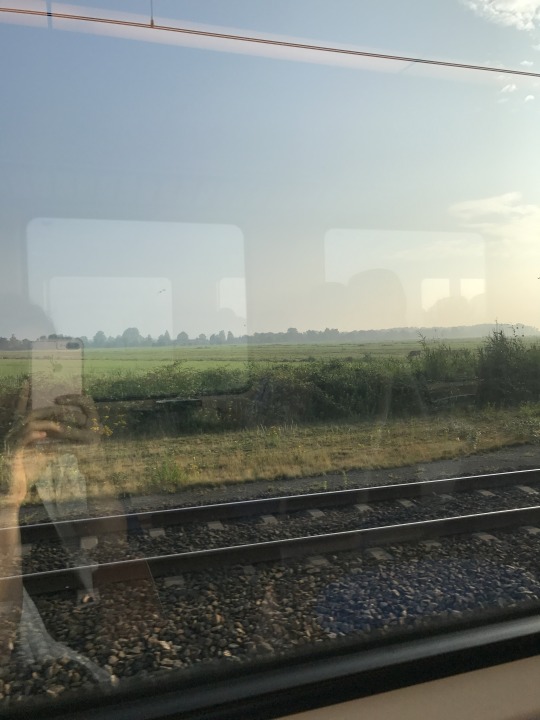
There is no particular reason to follow these threads now. I teach H.D. occasionally, and I wrote an undergraduate thesis about her, but I don't work on her anymore (my conference presentations are about Mary Austin and James Weldon Johnson, contemporaries of H.D.'s who had nothing to do with her). But when I realized I was going to have a little over a month to travel in Europe, when I thought of where I wanted to go, I thought of Corfu, where H.D. had a vision that was significant for her, and that thought has shaped the contours of this trip.
It's fitting, given the Freudian connection, that as I've traveled I've discovered a number of submerged reasons for the sudden desire to return to H.D. now. They have to do with loss, and identity, and class, and criticism, and taste. They have to do with recovery, and with poesis. They're about solitude and connection. They're about the disconnect between my personal and my professional lives and the submerged threads that loosely bind them.
I started reading and writing about H.D. about the same time I started a relationship that lasted through almost all of my twenties. Though the relationship is long over, the process of sorting out the stories and the selves it generated hasn't really stopped for me. Is this an overdue project? Yes and no. Somewhere in A Lover's Discourse Barthes writes about those who are disorganized by mourning for longer than is acceptable. In Freud's terms, such a person is melancholic -- they can't get past an event or a feeling. I am prone to melancholic loops. It takes me ages to fully process emotions and to understand intellectually what I've been feeling intensely. Common knowledge has it that it takes half the lifespan of a relationship to get over it. If that's so, I'm well past the expiration date for thinking about this one in any kind of sustained way. But what does it mean to get over a part of your history, a part of the things that make you you? What would it mean to fully process it? What about the lingering emotions and questions that exceed the memory of the person or the relationship itself, which is really what I'm talking about here, since I no longer know the person(s) my ex has become, just as he no longer knows me? Isn't it worse to fail to reconcile with these lingering questions, to just put them aside, to pretend things end neatly, or at all?
Rebecca Solnit's A Field Guide to Getting Lost is one of the books I loaded on my Kindle before leaving the States (I know, I know -- a little on the nose for traipsing around Europe), and I was struck by the following lines in the essay "Two Arrowheads":
"A happy love is a single story, a disintegrating one is two or more competing, conflicting versions, and a disintegrated one lies at your feet like a shattered mirror, each shard reflecting a different story ... The stories don't fit back together, and it's the end of stories, those devices we carry like shells and shields and blinkers and occasionally maps and compasses."
One mirror shard: we made each other worse versions of ourselves. Another: I was cruel. Another: from the beginning, he had a lot of stories about who I was that didn't have anything to do with my experience of myself, that were classed and gendered on both sides.
I think that on some level, with this trip I'm trying to go back to a point before that doubled and multiplied story, to tell a new one of myself in relation to myself, my thoughts, my non-romantic relationships, places, books, systems, landscapes, genealogies. These are all stories I already tell myself, that I already share with others, that I already live, but I think I wanted to make them mappable. All of the international travel I've done in my adult life was with that partner; this is my first overseas trip alone. It is a chance to carve out new territory, layer new experiences on the old. It's a chance to, so to speak, reclaim my time, in a political era that is both hostile to my existence as a woman and that commits violence in the name of a quality it ascribes to my body (white womanhood, always in peril).
I wrote my undergraduate thesis about H.D. after falling in love with her epic poem Trilogy in a class on American women writers. At the time I knew it was pretentious to talk about this project as the beginning of my intellectual career, but I also really liked to talk about it in those terms. I had always been the smart kid, but this project was the first time that it truly seemed that ideas could be, not just instrumental (good grades, college admissions, stable career), not just interesting, but the stuff of a fulfilling life's work, a significant part of a life. The class in which I first read Trilogy was all about taking womens' ideas seriously. My undergraduate advisor took mine very seriously, encouraging me to apply for fellowships, nominating me for prizes, helping me to see my ideas as part of a conversation with "real" scholars -- the first of a long line of women to do so, to whom I owe the career I have now.
One of H.D.'s favorite tropes to play with was the palimpsest. "Palimpsest" refers to a piece of parchment or paper that has been written on, partially erased, and then overwritten with another text. The first writing is obscured and fragmentary, but still there as an echo or a trace. In extended, metaphorical usage, "palimpsest" is anything that has been reused, written over, but that still has some evidence of its earlier forms. It is the perfect image for a poet who wanted to think about history and the unconscious and trauma -- for all of the things that seem to be over and gone that keep returning in altered forms.
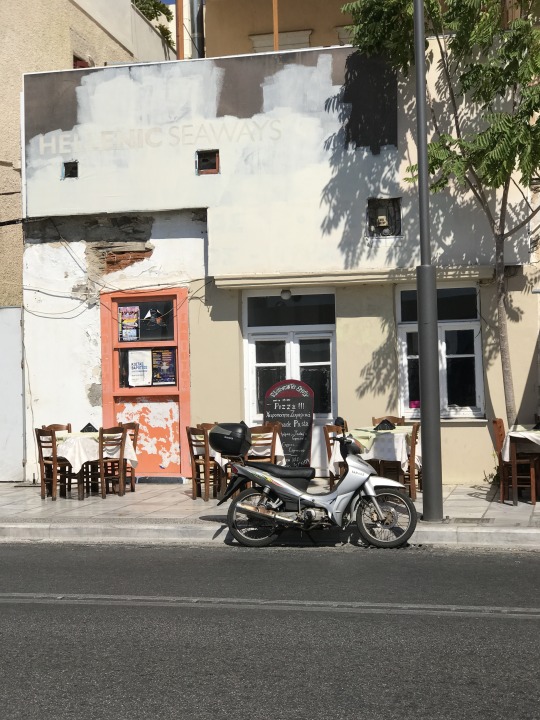
[Palimpsest in Ermoupolis]
The image of the palimpsest that H.D. worked and reworked is a way to think about loss differently-- to look at all the layers that make up a life, including the traces of things that have ended or been destroyed, that shift to form patterns and shift again to create a blur that maybe becomes a pattern again. I realized consciously, standing in front of the reconstructed Bella Venezia hotel in Corfu town (the original was destroyed, collateral damage of WWII), the site of H.D.'s Corfu event, that I came on this trip to think about my own personal palimpsest -- an image that's complicated and simple and meaningless and my entire world, the way that all individual lives are infinitessimally small and infinitely large at the same time. (At a Passover dinner in Missouri this spring, part of a new layer in my palimpsest, my friend Rachel read us the Talmudic saying that who saves a life saves the entire world. I think of this often when I'm tired of/from activist work in the Trump era.) My palimpsest includes that relationship that defined my twenties, but it does not start or end there, as I sometimes used to like to pretend it did.
Others have made the case for the seriousness of womens' thoughts and lives and creations in ways I now find more compelling, but H.D. will always be the first who made me think in a sustained way about these things. For that reason alone I wanted her to be part of the palimpsest or pattern or constellation I decided to trace this summer. I wanted to weave her more fully into the life that tendrils out from Iowa to Amsterdam to Corfu to Zurich to Missouri and on and on. And so I came to Vienna, and Corfu, and kept going.
II. Corfu: Vision
"We had come together in order to substantiate something. I did not know what. There was something that was beating in my brain; I do not say my heart -- my brain. I wanted it to be let out." -- H.D., Tribute to Freud
I haven't thought about H.D. much since I started grad school. When you talk about H.D. in academic circles, you have to hedge and qualify. There is something embarrassing about her. She is excessive -- excessively melodramatic, excessively self-serious. And yet. And because.
I like excessive women. I especially like women who insist on giving weight to the experiences and emotions that get coded as melodramatic or self-indulgent. I like H.D.
H.D. had a breakdown/breakthrough in Corfu town in 1920. She was fleeing London and WWI and what she experienced as the total fragmentation of her personal world and the world at large during the war. While staying at the Bella Venezia hotel, she had a vision of mysterious hieroglyphic writing on the wall of her hotel room. Much later, in 1933, she underwent a brief period of analysis with Freud in Vienna during which they tried to decipher what the writing meant.
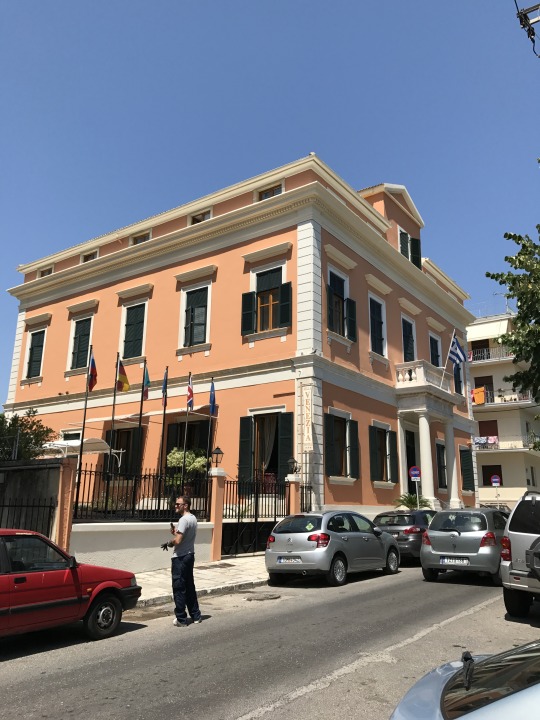
[The new Bella Venezia]
I took great pleasure in re-reading H.D.'s account of her analysis with Freud on the train from Vienna to Rome, adding another layer on top of her narrative of their interweaved patterns, which linked Vienna and Rome and Corfu. I had forgotten how much I admire Tribute to Freud in all its excessiveness. It's self-indulgent, yes, and free-associative, yes, and at times utterly impossible, but it's also a text in which H.D. asserts her authority to interpret her own life in ways that Freud did not sanction, and in which she insists on a reparative reading of history, in spite of the very real trauma she lived through (H.D. experienced much of the violence of both world wars at firsthand -- she lost a brother in WWI, suffered a miscarriage, had a severely shell-shocked husband return home to her, and then lived in London during the Blitz).
In Tribute, H.D. repeatedly stakes a claim to her right to interpretation and to self-knowledge that both depends upon and is separate from Freud's authority. H.D.'s palimpsest involved stories and symbols from all kinds of classical mythological worlds, which overlapped with Freud's more skeptically tinged interest in antiquities and the history of religion. She explained that due to this overlap, "Sometimes, the Professor knew actually my terrain, sometimes it was implicit in a statue or a picture, like that old-fashioned steel engraving of the Temple at Karnak that hung above the couch. I had visited that particular temple, he had not" (10-11). It's a small but important moment in which H.D. asserts the value of her personal experience as part of her dialogue with Freud. He may be the analyst, he may have the collection to testify to a vast body of knowledge about the classical world, but she too had her ways of knowing.
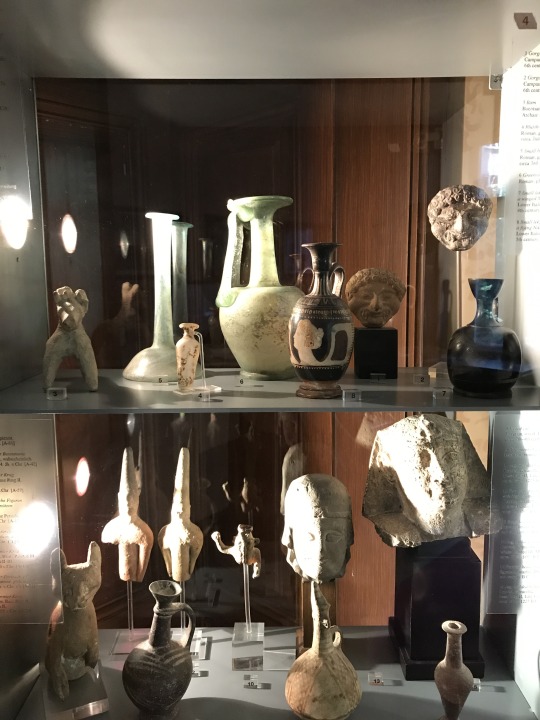
[Part of Freud’s antiquities collection, which I spent a long time examining at Bergasse 19]
Famously (among H.D. scholars, at least), H.D. wrote that "there was an argument implicit in our very bones" (17), and that, though she "was a student, working under the direction of the greatest mind of this and of perhaps many succeeding generations ... the Professor was not always right" (24-25). Their argument came down, essentially, to hope; Freud diagnosed H.D. with a type of religious monomania -- the desire to found a new religion -- and saw her desire for meaningful signs and symbols, for a pattern or order in the world, to be a dangerous symptom of a delusion.
This was especially true when it came to what she called the "writing-on-the-wall" episode in Corfu.

[Writing on the wall 2017 -- the more things change. I’m writing this caption the day after Charlottesville.]
In her long description of the vision and her argument with Freud about the vision, H.D. explained,
"We can read my writing, the fact that there was writing, in two ways or in more than two ways. We can read or translate it as a suppressed desire for forbidden 'signs and wonders,' breaking bounds, a suppressed desire to 'found a new religion' which the Professor ferreted out ... Or this writing-on-the-wall is merely an extension of the artist's mind, a picture or an illustrated poem, taken out of the actual dream or day-dream content and project from within (though apparently from outside), really a high-powered idea, simply over-stressed, over-thought, you might say, an echo of an idea, a reflection of a reflection, a 'freak' thought that had got out of hand, gone too far, a 'dangerous symptom'" (75-76).
A hysterical woman, or an artist? Irrational emotions or ideas worth attending to? Her right to her ideas -- to stay with them, to think about them intently, to consider what they could signify aside from some kind of disorder in her mind -- is at the heart of Tribute to Freud as much as her genuine homage to the man who "had first opened the field to the study of this vast, unexplored region," the "shapes, lines, graphs [that made up] the hieroglyph of the unconscious" (140). It is this fight that remains at the heart of my love for her work.
III. Rome: Scale
"What does it mean to call something petty, or to be petty yourself? Pettiness has to do with being out of scale. We might understand pettiness as a relation between attention and object of attention: you are being petty when a small or seemingly irrelevant detail generates disproportionate irritation; you are also being petty when irritation leads you to pay disproportionate attention to a small detail."
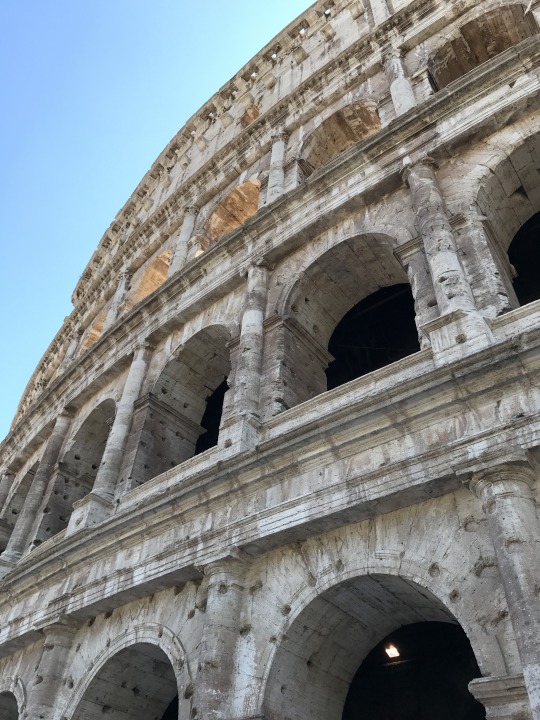
Though I didn't see it when it started (indeed, I didn't see it until after very many years of therapy and much nudging from my own analyst), the relationship that defined my twenties involved a lot of him telling me that my ways of being in the world were wrong -- something I had accepted in part because this was a recurring experience I had in college, at an institution that I at first romanticized and very quickly became horrified by, as I was trained out of old habits and systems and assumptions and socioeconomic expectations and behaviors (some amalgamation of lower middle class/middlebrow, always haunted by the specter of slipping back in the poverty of previous generations, never secure about money or status, not trained to like the "right" things or to behave in the right ways) into new ones (the cruelty of old money, the desperation of new or aspiring new money). I value some of this retraining when it comes to the scholastic realm, but a lot of it never really took. This failure to be retrained shapes the kind of thinker and critic and teacher I am now. It has a lot to do with why I live in Missouri and why I felt immediately connected to my community there even as I'm exasperated by it. It is part of why I'm writing this as a blog post and not as a piece of professionalized writing.
The only physical book I brought with me on this trip is the third volume of Elena Ferrante's Neapolitan novels because I was right in the middle of it when my flight took off and because I couldn't bear to be apart from the story. (I'm dragging it around now even though I've finished it and don't have room for it in my backpack for the same reason. I almost tried to squeeze in a visit to Naples and Ischia but couldn't swing it, so Rome had to stand in.) These novels often get reduced to "those books about female friendship," which they are, but they are also about the details of what it means to be trained out of the class you were born into, and about what it means to think about womens' lives as part of larger movements and systems but also as outside of and irreducible to those systems. They're about what women lose, intentionally and not, under patriarchy and capitalism, how the game is rigged and how it forces you to play anyway.
Sarah Blackwood and Sarah Mesle are currently my favorite readers of these novels because of the ways they've thought about how criticism isn't really up to they challenges they pose. In "The Function of Pettiness at the Present Time," Blackwood and Mesle read Ferrante's novels as, paradoxically, importantly petty. It is the pettiness of the details of the womens' lives in the books, they argue, that manage to accurately capture "the grinding quality" of gendered experiences of "rape, loss, poverty, abuse, marriage, friendship."
I write this in the days immediately following the clip of Maxine Waters reclaiming her time going viral, another perfect example of the huge importance of pettiness. Steve Mnuchin is of course the one actually being petty by refusing to answer Waters's question, but Waters is the one forced to repeatedly assert her right to not have her time wasted with bullshitting. She has to say it over and over and over and over and over. And she does because she is a goddamn heroine, but she still has to engage in the grindingness of the exchange.
A petty, huge fight I had with the first person I dated after the relationship that defined my twenties ended started with the words "what's so bad about sexism really, though?" I only wish that that person, bless his heart, could have realized how fully he was enacting sexist violence through that question and his continued insistence throughout the fight that my nuanced arguments came down to "it makes women feel bad" -- a petty reading of a grinding experience indeed. In our era of presidential gaslighting, of re-entrenched sexism and misogyny (what a joke -- as if it had ever been uprooted an inch), I don't want to talk to anyone who isn't being petty, who isn't thinking about the minutiae of daily life and how fucking irritating it is to deal with this shit all of the goddamn time. Mesle and Blackwood:
"The Neapolitan novels feel weirdly capacious to us because they have allowed space for ugly feelings to exist, and importantly not only in their fictional depiction. One thing that this ugliness has allowed us is new purchase on the experience of reading, interpreting, and practicing criticism as women. It seems to us, personally, and as women, that to love these novels is to hate how most everyone else talks, argues, and makes claims about them. In fact, to love these novels, as women, might be to hate everyone; that hate might be one of the best (yet still limited) tools we have to understand how gender continues, obstinately, to shape individuals' entrance into interpretation."
I haven't wanted to talk to anyone who isn't feeling petty about gender since November 9th. But I also don't want to talk to anyone who isn't feeling petty about class and race, and in the academy, I find that people are rarely petty enough, for my taste, about class, Mesle and Blackwood included (we do slightly -- only slightly -- better about dealing critically with race. And of course it needs to be said, over and over and over, that these are not extricable categories -- you can't talk about gender without talking about race without talking about class. Though you wouldn't know it from the constant headlines about Trump voters, the "working" class is not exclusively composed of angry white men).
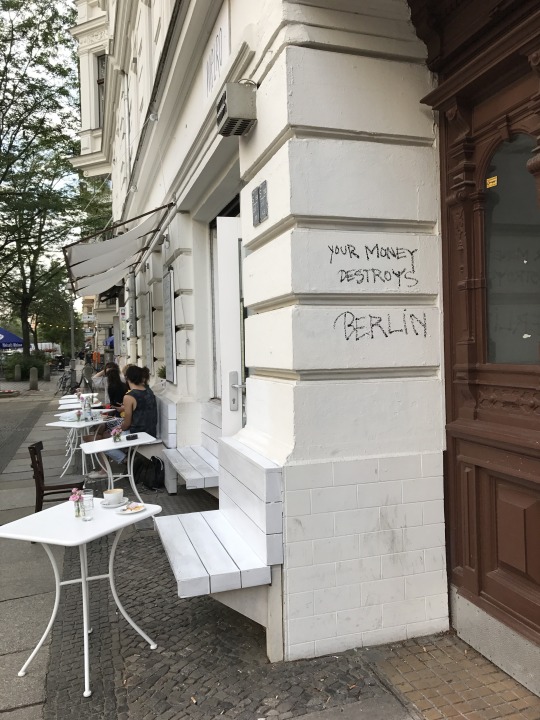
Two things irritated me about Mesle and Blackwood's brilliant reading of being irritated by readings of the Neapolitan novels: one petty and one very large indeed. The petty (which is of course to say the still large): they read a scene in which "Lenu realizes that her entire critical and creative life might be 'reduced merely to a petty battle to change her social class,'" which is indeed a crucial moment. The Lenu who has changed her social class has this thought, yes, that the fight may have been "mere." But when I read this line, the affirmation that such a battle would be petty, all I could think of was the bitter catharsis I saw in some of my middle school classmates, listening to Everclear on the back of the bus that took us home from school, singing along with the lines, "I hate those people who love to tell you / money is the root of all that kills/ they have never been poor / they have never known the joy of a welfare Christmas." It's merely changing your social class once you've done it, but there's nothing mere about it when you're living day to day, bracing for the petty economic catastrophe that could ruin you at any minute. (Would such a change be "mere" to the Lila who had to stop her education after elementary school, who destroys her body and mind working in the sausage factory?) In the context of the novel, the "mereness" has to do with a failure to live according to revolutionary political ideals -- to fit the personal into the larger systems that shape it and to take on the larger systems rather than the "mere" individual life. But the novels also show us the consequences of living for those ideals in the story arcs of Pasquale and Nadia. The system doesn't change, the individual life is ruined or corrupted anyway.
What I love about these novels, what I haven't seen discussed yet in criticism about them (which could be my own blindness, because I keep reading the articles focusing on gender), is how they also capture the grindingness and pettiness of the experience of "merely" changing one's socioeconomic status, in addition to capturing the ways it can make one myopic and self-centered. Lenu is an outsider to the world of the Italian academy -- it is a shock to her when she is admitted, tuition-free, to a university in Pisa -- and she marvels at her professor's children, who seem to move so naturally in a world of ideas she has to work to come to grips with. The passages about the frustration of not knowing how to navigate new social spaces, of not understanding what the rules are -- that show how difficult it can be to figure out what the game even is, let alone how to play -- struck me so forcefully. (This is why, of all the novels in the world, I will always remain deeply, intensely attached to Great Expectations. Pip never really gets it -- the game plays him, and he doesn't understand anything about it until it's far too late.)

[This is also why I was thrilled to see The Goldfinch in person in the Hague; Donna Tartt's novel of the same name is a reworking of Great Expectations.]
What you learn is to shut up, to imitate, to not speak up when an idea or assumption seems wrong to you, because you know that any wrongness is always located in the things you learned as a member of other, unprestigious communities, from people with no status. Take, for instance, Lenu's account of a discussion of an article she hadn't read about Italian politics:
"The subject made me uneasy, and I listened in silence. ... I was informed about world events only superficially, and I had picked up almost nothing about students, demonstrations, clashes, the wounded, arrests, blood. Since I was now outside the university, all I really knew about that chaos was Pietro's [her fiancee] grubmlings, his complaints about what he called literally 'the Pisan nonsense.' As a result I felt around me a scene with confusing features: features that, however, my companions seemed able to decipher with great precision, Nino even more than the others. I sat beside him, I listened, I touched his arm with mine."
Nino, who comes from the same place as Lenu, understands the game faster than she does (or at least appears to), and we see her here in some ways trying to take a shortcut through him -- attaching herself to his body, desiring to take on some of his facility in this world of ideas through physical contact, the same way her husband Pietro, of that academic, petit bourgeouis class, provides her a way in.
The novels also beautifully, simply, killingly describe the ways that changing one's socioeconomic status can alienate you from your family and them from you, temporarily or permanently. Lenu's family is of course proud of her, but also resentful of her and ashamed when she brings her new realm to them. When she finally brings her higher-status fiancee home, she waits until the last minute to tell her parents he's coming, which causes the following scene with her mother:
"She attacked me in very low but shrill tones, hissing with reddened eyes: We are nothing to you, you tell us nothing until the last minute, the young lady thinks she's somebody because she has an education, because she writes books, because she's marrying a professor, but my dear, you came out of this belly and you are made of this substance, so don't act superior and don't ever forget that if you are intelligent, I who carried you in here am just as intelligent, if not more, and if I had had the chance I would have done the same as you, understand?"
I still have a hard time thinking about how angry I was with my family for not preparing me better for the violent competitiveness, for the disillusionment, for the fundamental pettiness, of social climbing via educational institutions in America. They couldn't have, of course, and it wasn't actually them I was mad at -- it was the people constructing and enforcing the rules of the game -- but that didn't make the conflict any less real. It didn't make it any easier to go home, to see the ideas and ways of knowing and cultural productions I was now supposed to scoff at, to be better than.
A petty incident I haven't let go of and will never let go of (the same way I will not let go of ending sentences with prepositions): in a creative writing class, a fellow student wrote a story about meeting an autodidact. It was, to my mind, a shitty, condescending portrait written by a shitty, overprivileged prep school kid. The professor praised it as a true portrait of what autodidacts are like. I fumed for days to myself about this and was never able to express how fundamentally gross the whole exchange was. It was so dismissive of this character, of their way of processing the world, which irritated me deeply because of how many autodidacts I grew up with, who were autodidacts because education is a class-based system even in our supposedly democratic nation. Of course you process the world differently if you have acquired knowledge without the guidance of institutions designed to shore up class differences, which are also gendered and raced differences. Why that should then become a source of bemusement for people with access to those institutions, a way to write cute stories about how smart and talented they are after all their years in those institutions...well. It's a thing I have no desire to reconcile myself to. (And, it needs to be said, this truly is a petty incident, compared to the serious aggressions my non-white classmates faced daily in virtually every classroom, every space on campus.)
So, the petty irritation with Mesle and Blackwood's reading: it's not petty enough about classed experience. The larger irritation: I want them to go further, to double down on claims they gesture toward or feint at here that they assert forcefully elsewhere. In a non-scholarly article, they argue that "taste is just another name for misogyny," but in this piece they argue that this claim, when presented "as a truth claim at the foundation of an argument rather than the argument itself...can't hold ... it is out of scale with itself." But of course this claim can and does hold, and can be backed up with all kinds of careful, rigorous scholarship, as can claims that taste is another name for racism and for classism. Take Michael Omi and Howard Winant on racial formation, "the process by which social, economic and political forces determine the content and importance of racial categories ... in the cultural realm, dress, music, art, language and indeed the very concept of 'taste' has been shaped by racial consciousness and racial dynamics" (qtd. in Bibby 493). Take basically all of Pierre Bourdieu's work, or the whole field of cultural studies, or race studies, or gender studies, or queer studies -- all of it provides more than ample evidence that taste is another name for oppression. I want Blackwood and Mesle to own this, to say, not just that taste is misogyny, but fuck the very idea of taste. It is worse than useless; it's violent.
I write "fuck taste," and take great pleasure in writing it, and mean it sincerely. And yet, as of April 2016, I am in a position to be the gatekeeper, the one who tells students that their ways of knowing are wrong, that there are other evaluative standards than the ones they know that they must apply if they want to enter a world of ideas. I spend a lot of time telling students that the ways they're used to reading literature will no longer work for them, at least not in my classroom. But I do what I can to explain that ways of knowing, ways of reading, are situational. They depend on communities and contexts, and the way they learn to read in the classroom isn't the only or even always the most desirable way to read.
When I teach, I focus my students' attention on particular texts not because I think they're objectively good, as if that's something that could ever be evaluated, but because I think they contain ideas that my students need to encounter, to think about, to wrestle with to live lives that don't remain petty and quotidian, even as they remain grounded in those categories. I don't want them to have to be trained into a new class, though I want them to have the tools they'll need if they want to fight that battle. I want to make their worlds bigger. I want them to think about the types of communities they want to create for themselves, at all scales. I want them to dream, and to create their own palimpsests, and pull together the texts and experiences and people that they need, that define them, that make them bigger and better versions of themselves, that add to their stories. This project seems so much more urgent than evaluative criticism ever has been or could be. That probably makes it utopian and quixotic. But I also know that already, for a student or two, this approach has mattered.
"Good" is a useless term; "worth thinking about" is better. I want to live in a world in which people say "that's not for me" rather than "that's objectively bad," where we ask "what do the people who it's for like about it? What's interesting about this object when I try to remove my ego from the conversation?" and so I do my best to create that world for myself and my students every day. I can't make anyone else dwell there with me, but I try to make it an inviting place.
IV. Syros and Lesvos: Re-enchantment

[I was a free [woman] in [Lesvos] / I felt unfettered and alive]
Like a lot of women, I've been trained out of feeling that self-expression is seemly or necessary. This happened insidiously in various complicated ways, most of them having to do with writing. I've always written -- I made picture books out of construction paper bound with masking tape before I understood the alphabet; in elementary school I wrote stories in which I was a genius child detective; as a teenager I wrote a ton of earnest poetry about how many feelings I felt (one of them even won an award and I got to read it at a public event -- unsurprisingly, it bummed the audience out); as a young adult I tried to write fiction but quickly felt that I would never be successful at it (one of the last pieces I wrote in fact was about my fear of failure, inspired by the panic attacks that a change in anti-depression medication caused during my junior year of college. It lives on online, because what is millennial self-expression if it's not on the internet?). I discovered uncreative writing; I started dating someone who believed that self-expression was essentially just narcissism. After college, I stopped writing anything that wasn't career-oriented. I didn't even journal for myself anymore.
Being trained out of your class, being socialized as a woman, means learning to distrust your instincts and to put aside the things that merely make you happy in order to make room for the things that are Important, according to Important People. This trip has been at some level about reenchantment, about following desire and sensation just because they exist and I exist. Because I fucking love existing, and I fucking love writing about existing. (Someone I dated briefly told me he liked being with me because I took so much joy in the things I loved -- I believe his exact words were "experiencing things with you is fucking exhilarating." It remains one of my favorite compliments, one that I try to live up to.)
Something that had been shifting inside of me for a while broke open when I read Maggie Nelson's The Argonauts last fall. The way that she used academic criticism to think about her life was so elegant and free and liberating. It made me want to write again -- to give shape to my thoughts other than the very specific shape required by academic writing. It made me want to think about living as a creative act. It felt like one while I was on Syros and Lesvos.
I captured some of what Syros was like for me here. I slept in; I wrote my academic writing; I swam in the sea; I drank ouzo and tsipouro and wrote my non-academic writing. I went for night swims and hikes and ate every fig I could find. I sat one day at the top of Ermoupolis, under pine trees overlooking the port and read Tribute to the Angels, book two of H.D.'s Trilogy.
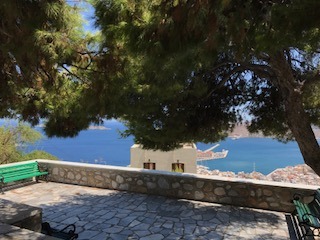
Ermoupolis is named for Hermes. I had forgotten that Tribute opens with an invocation of Hermes:
Hermes Trismegistus
is patron of alchemists;
his province is thought,
inventive, artful and curious
Tribute is a book about reinvention, recreation after absolute destruction, pursued through writing. One of the central images is the vision of a holy woman, a palimpsest of Mary and Eve and Lillith and Isis and Astarte and Ashtaroth. The woman is described as "Psyche, the butterfly, / out of the cocoon." I don't believe in signs and wonders the way H.D. did, but, when I read those lines, a butterfly flew across my line of sight, and stayed, fluttering up and down on the wind until I finished the book.
no trick of the pen or brush
could capture that impression
**
Lesvos was, if anything, more magical than Syros, which I didn't think was possible. I only saw a very tiny corner of the north of the island -- essentially just Molyvos and Eftalou, but it was more than enough. The hot springs in Eftalou alone...
On Lesvos, I started reading Alana Massey's brilliant and funny All the Lives I Want, and made a million notes in the margins that were all variations of "fuck. yes!" The title essay, about Sylvia Plath fangirls, is especially marked up. Massey argues that Plath's poetry and journals, and the fan art on display in certain corners of the internet, are "ongoing act[s] of self-documentation in a world that punishes female experience (that doesn't aspire to maleness)," which makes them "radical declaration[s] that women are within our rights to contribute to the story of what it means to be a human." Reading the final line of The Bell Jar ("I took a deep breath and listened to the old brag of my heart: I am, I am, I am."), Massey notes, it's difficult "to think of any line of thinking more linked to being a socialized female than to consider the declaration of simply existing to feel like a form of bragging." Massey stakes a claim for girlhood, for effusive emoting and navel-gazing introspection, as sites of strong affective attachments and sharp intuitions about the world that should be valued: "Young girls are smarter than they're given credit for, and more resilient, too. They like what they like for good reason."
In general the rating system on Airbnb makes me uncomfortable the way all rating systems make me uncomfortable, but my hosts on Lesvos wrote, "Erin is a joyful and adorable person." I was so tickled by their choice of words because they capture the spirit of girlhood that Massey champions:
"I want to call out to the girls who repeat Sylvia's poisonous directive, 'I must bridge the gap between adolescent glitter and mature glow.' This is a fallacy, a lie intended to kill the spirits of girls so that they might become what we have come to expect of women. ... Glitter is the unbridled multitudes of shining objects that have no predictable trajectory and no particular use but their own splendor. A glow is contained. Its purpose is to offer a light bright enough that those who bear it will cast a shadow, but not so bright that their features will come fully into focus. 'Never surrender your glitter' sounds like the cliche battle cry of a cheerleading coach or a pageant mom, but I still find it a suitable message for young girls."
My favorite beach in Syros was full of mica schist -- as you swam in the clear blue Aegean, the mica filled the water and glittered in the sunlight over your skin. I bathed in glitter every day on that island. Signs and wonders.
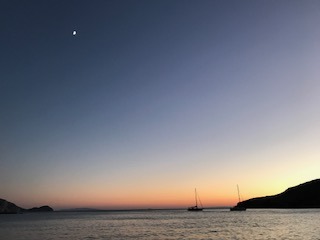
V. Zurich: Out of Line
In fifth grade, my teacher told my mother that I was a pleasure to have in the classroom. Without missing a beat, my mom replied, "You don't know what a viper you're nursing at your bosom." They were both right. I am joyful and adorable, and I am almost always, on some level, furious. (Someday I hope to work at Sam Irby’s school for girls with bad attitudes.)
I was made to feel unsafe three times on this trip: twice men followed me as I walked alone at night, and once a bus ticket taker didn't exactly assault me, but he didn't exactly not assault me. I expected things like this to happen on this trip, because they happen everywhere. But god. The way a patriarchal world will try to shut you down every time you try to take pleasure in it.
Maggie Nelson writes about the "many-gendered mothers of the heart” who help her live in the world; Massey writes about her famous friends (celebrities she's never met) who help her do the same. For me as for Massey, Courtney Love is one of those many-gendered mothers who helps me cope with the constant misogynistic violence of the world. Courtney was loud and messy and dramatic and ugly and gorgeous in the 90s, when I first became aware of her. Though I didn't exactly have the language or the concepts for it then, I felt the truth that Courtney embodied "female rage as ... the logical response to a hostile world,” as Massey describes her:
"When evil is done to a person, it gets under their skin, if there is enough of it, it'll sink down through the flesh and into the bones, becoming part of its target. For most of us, the pain is absorbed as poison rather than power. We see a world awash in women's blood and tears. We endure claims that the most profound kinds of pain are the exclusive possessions of men, that they are best equipped to make art from this suffering. Instead of bearing witness to it, we are asked to be killed by it, quietly if possible. But Courtney did nothing quietly."
(Courtney: "honeysuckle / she's full of poison / she obliterated everything she kissed")
Like Massey, "I have not seen a fraction of the cruelty that the world is capable of, but I have trembled often enough in the aftershocks of my own resistance to a world built to break me to know that female brutality is not just an acceptable response, it is the most sensible one, too." I saw Courtney in the play Kansas City Choir Boy at the Oberon theater in Boston a few years ago. The play was...not for me (it was for a certain kind of creative white man), but Courtney was. She passed so near my seat at one point I could have reached out and touched the tiny flower tattoos on her arm, could see the glitter eyeshadow she wore. I was so, so happy sharing space with her. I love that bitch. I love her for being angry and messy and never apologizing. I'll hold that moment in my heart forever.
Of course, to refuse to behave respectably, according to gendered, classed, raced codes, is a particularly fraught survival strategy for people who inhabit bodies that tend to get disciplined and punished. (Just look at the police response to an actual fucking Nazi rally and compare the way they’ve treated peaceful black protestors.) I read a lot of books by white women on this trip -- actually, a lot of books by white women my age, who spent their late teens/early twenties in and around New York -- in part because I wanted to navel gaze, to dive into my own experiences and identity. But of course identity, experience, only happen in relation to other identities and experiences. The women I've been reading have suffered, have felt pain, have expressed it in ways I've found compelling. But they're also insulated from some types of pain, the same way that I am, by my whiteness, by what some people read as "adorableness" or attractiveness. It's easier for me, and for the women I've been reading, to access some survival strategies than it is for other women. White girls can act out with relatively less punishment than black girls; those of us who write/think for a living often have access to grants and funding structures that allow us to be selfish, to take the time to pursue ideas.
I stopped in Zurich for a day and a half on my way back to Amsterdam because it is where H.D. lived in the last years of her life, where she wrote a few of her major works. It is also near where my paternal ancestors are from, so it was a chance to take a selfie in Kappeler alley and Kappeler park.
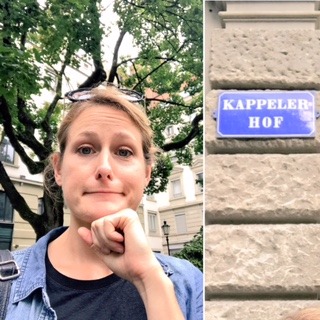
I thought a lot about privilege in Zurich, one of the most insanely expensive cities I've ever visited. The places where H.D. lived and wrote in Zurich are gorgeous and peaceful.

[The Klinik Hirslanden, where H.D. spent her final days]
The peace she found there was hard fought, and it makes me happy to know she was able to make that place for herself. But she was able to make that place because of her heiress lover, her whiteness, her access to certain kinds of privileged spaces.
In Zurich I started How to Murder Your Life by Cat Marnell (which is such a compelling read). It's another story of a privileged white female writer, but it's also the story of an addict. And oh my god, if you want your heart broken, read Marnell's description of what her parents did with her zine. The way they shut down her means of self-expression, of effusion, of girlish excitement and emotion, is brutal, and brutally common for girls, even if they're rich, even if they're white. Marnell, like Love, survives by acting out, by refusing to conform, to be quiet and docile. It's not necessarily a good strategy -- Marnell's is not a happy story, and it's questionable how long she will continue to survive. But it is a significant strategy, a way to protest, "the logical response to a hostile world." (It can't destroy you if you destroy yourself.)

[There is a beautiful cemetery across the street from the Klinik Hirslanden, full of statues of women like this. They mark women whose lives are long over, who may or may not be remembered. They seemed to me both tragic and defiant, poignant symbols of loss and endurance.]
***
What does it mean for me, a white cisgender woman, to remain invested in the category "woman" now? What does it mean to claim my experiences, my existence as important, when I exist as a white woman in a country where white supremacism is newly emboldened and sanctioned? (And, to borrow a phrase from Mesle and Blackwood, let’s be crystal fucking clear about this: white supremacism has always been there. It’s structurally a part of our country in a million different ways. What we’re seeing today isn’t surprising or new; it’s the logical outcome of our failure to confront how white people maintain oppressive structures because we benefit from them.) As Mesle and Blackwood argue in their reading of Ferrante,
"it is worth saying that 'woman' is obviously a troubling category. 2017 is a year when the world has emphasized both how radically women are vulnerable as women, with pussies to be grabbed, and also has made the violence that white, straight, middle-class women do to others crystal fucking clear. (Trump's voting block depended precisely upon the pettiness of white women.) Further, we can't even use the word 'woman' without mobilizing a language that is inherently false, and heterosexist, in its understanding of what it means to be human. Perhaps 'woman' is a word that should have no force in criticism. Many people think this, and we see their point. Yet we - we, the writers of this piece -- are uncomfortable with the way this formulation allows human knowledge, here literary criticism, to hopscotch yet again over the responsibility to understand the particularities of women's experiences, in the way that science and medicine and economics and history often have done. ... This is the tension of the sign of 'woman': that it is out of scale, simultaneously universal and particular, simultaneously useful and an obstacle, outmoded. We have to talk about it, and yet can't."
I don't believe that there are any universal or essential experiences of womanhood. "Woman," "female" are of course socially constructed categories, not empirical realities. But the experience of being socialized as a woman does things to you. It creates problems and opportunities and frustrations and acts of violence and intense, intense pleasures. It creates the particularities of individual lives. The experiences of people who live as women matter to me, fundamentally and completely. My attachment to the sign "woman" is serious and real, even as it's fraught and falls apart as soon as I start to interrogate the category with any rigor. Perhaps "woman" is simply the sign for what Mesle and Blackwood identify as "a kind of ecstatic bitterness that is the opposite of consensus making or persuasion. It is aligned with the lived-ness of gender, with the deauthorization of all those whose lives never stand as common sense. This bitterness reminds us that it is always a privilege to have the luxury of leaving pettiness behind."
VI. Missouri: Enlargement
This has been a hard year, personally and politically. I love the new life I started making when I accepted my first tenure-track job in the spring of 2016, but making a new life is difficult and draining work. I think I would have been emotionally tired no matter what. But this was also a year in which I decided I'm going to keep consciously rejecting the versions of adult female life that are legible to people, which is right for me but also a difficult thing to do. And, of course, it was the year of the worst imaginable presidential election outcome, and of moving to a state where the state government is actually worse than the current presidential administration. It's hard to realize how many of your neighbors are contemptuous of you just because you're female, and of your friends because they're trans, gay, bi, non-binary, not white, an immigrant, economically disenfranchised, neurodiverse, ill, and on and on and on. By the end of the spring semester I was tired and emotionally sick in a way I've never been before. Planning this trip was a way out of that structure of feeling for me -- it was a way to chart a new course, build a new structure, enlarge the space in which I feel safe and free to exist.
Years ago, when Sheila Heti's How Should a Person Be? first came out, I fell deeply into that book and spent a lot of time thinking about it. I copied the protagonist and made a mental catalogue of what non-material things I had at my disposal. I wrote it down on an abandoned blog somewhere. I'd forgotten about it until I read re-read this passage in Tribute to Freud:
"We [H.D. and Freud] had come together in order to substantiate something. I did not know what. There was something that was beating in my brain; I do not say my heart -- my brain. I wanted it to be let out. I wanted to free myself of repetitive thoughts and experiences -- my own and those of many of my contemporaries. I did not specifically realize just what it was I wanted, but I knew that I, like most of the people I knew, in England, America and on the Continent of Europe, were drifting. We were drifting. Where? I did not know but at least I accepted the fact that we were drifting. At least, I knew this -- I would (before the current of inevitable events swept me right into the main stream and so on to the cataract) stand aside, if I could (if it were not already too late), and take stock of my possessions. You might say that I had -- yes, I had something that I specifically owned. I owned myself. I did not really, of course. My family, my friends and my circumstances owned me. But I had something. Say it was a narrow birch-bark canoe. The great forest of the unknown, the supernormal or supernatural, was all around and about us. With the current gathering force, I could at least pull in to the shallows before it was too late, take stock of my very modest possessions of mind and body, and ask the old Hermit who lived on the edge of this vast domain to talk to me, to tell me, if he would, how best to steer my course" (17-18).
I got to pull into the eddy and take stock this summer. I am grateful; I am well supplied. I am ready to put my oar back in, which I must, because the current is still gathering, and we all have to do our individual parts to deal with the destruction that is here and that is coming. I am ready. I am, I am, I am.

0 notes